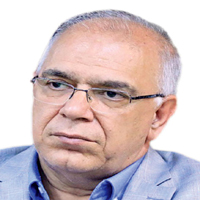Designing and verifying an instrument to measure religiosity
Author(s):
Article Type:
Research/Original Article (دارای رتبه معتبر)
Abstract:
Background and Objective
In spite of the paramount importance of religion in human life, the definition of its domain, concepts, and components is subject to theoretical and methodological uncertainty. The root of many of these ambiguities lies in the absence of appropriate measurement tools. Given that, the main purpose of this research is validating and determining reliability of a local instrument for measuring religiosity.
Method
This study aimed at developing an instrument. The participants were provided with researchers' questionnaire developed after studying documents and providing the theoretical framework, preparing question banks and validity. The sample, 500 adult citizens over 18 years old in 22 districts of Tehran selected by using random sampling and classification according to gender, age, and area of residence. The obtained data were utilized for exploratory factor analysis, Cronbach's alpha reliability, validity criteria, indicators fitted, and eventually the introduction of religiosity questionnaire. In this research, all the Ethical issues were observed and authors declared no conflicts of interest.
Results
Based on exploratory factor analysis (EFA), seven factors accounted for 65.67% of the religiosity variance. The results of exploratory factor analysis (RMSEA=0.08, CFI=0.907, GFI=0.869) show the 21-item questionnaire has an acceptable fit. The internal consistency (α=0.83) and consistency over time also indicated that the final questionnaire has acceptable reliability.
Conclusion
Results show that the developed questionnaire is acceptable in terms of validity and reliability to be used in Islamic societies for measuring religiosity.Keywords:
Language:
Persian
Published:
Journal of Pizhuhish dar din va salamat, Volume:5 Issue: 2, 2019
Pages:
6 to 22
https://magiran.com/p1985060
سامانه نویسندگان
مقالات دیگری از این نویسنده (گان)
-
Association between Social Mobility and Quality-of-Life Index in Women of Rasht: A Population-Based Study in the Iranian Context
Asiyeh Namazi, Hassan Rafiey*, , Ameneh Setareh Forouzan, Gholamreza Ghaedamini Harouni
Medical Journal Of the Islamic Republic of Iran, Winter 2023 -
The Effect of Social Capital on the Mental Health of the University Students During the COVID-19 Pandemic With the Mediation of the Resilience Variable
Fatemeh Adelinejad, *, Alireza Mohseni Tabrizi
Health in Emergencies and Disasters Quarterly, Autumn 2022


